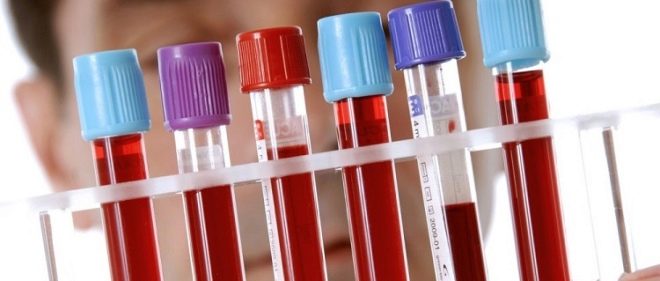6 week of pregnancy: what happens to the fetus and the expectant mother?
In the first trimester of pregnancy, quite a lot of interesting changes are taking place with the mother and baby. This time is very important: at 5-6 weeks of pregnancy, the baby begins to grow actively in my mother's tummy.
How many months is it
6 obstetric week of pregnancy is the time when the embryo has been developing for a month already. This period corresponds to 4 weeks from the date of conception.
Such a different calculation is due to the fact that obstetrician-gynecologists use another system to determine the age of the fetus. They use the term "obstetric month", the calendar count from the moment of conception is somewhat different.
Mother features
In the beginning of pregnancy, the expectant mother practically does not feel a strong connection with the baby. The embryo is still too small. A woman is more worried about her own feelings. In the first trimester of pregnancy, they can be quite a lot.
At the 6th week of pregnancy, changes in the future mother gradually begin to occur. Their development is preceded by a changing hormonal background: hormone levels change daily. This is necessary so that the baby fully grows and develops.
The altered level of female sex hormones also leads to the fact that the expectant mother appears characteristic changes in the mammary glands: they begin to increase and swell.
In the first weeks of pregnancy, their strong increase does not occur, but the swelling and density change is already well defined. Some women who experienced severe tenderness in the mammary glands in the very first days after conception, note that their breasts practically ceased to hurt by the 6th week of pregnancy.
Sensations
In the first weeks of pregnancy, expectant mothers may experience various symptoms. A woman has never come across many of them before. Their severity of each future mother is different.
They can also develop in different ways: each pregnancy is unique. Thus, the sensations that arise during the first pregnancy will never be identical with the subsequent ones.
Emotional perception and sleep
Changes in hormonal background lead to the fact that a pregnant woman may experience mood swings. Differences in emotions occur, as a rule, very quickly. For example, the future mother may experience strong joy and fun, and after a couple of hours to suffer and cry.
Many women note that such emotional outbursts and strong mood swings are difficult to control during pregnancy. Some women do not have specific emotional changes. This is due not only to the changed hormonal background, but also to the individual characteristics of the psyche.
Intense mental stress and stress can cause a woman to feel that she has a headache.This occurs as a result of temporary spasm of the blood vessels of the brain, which can occur during exposure to a strong stress factor. In some cases, a pregnant woman appears dizzy.
The increase in the hormonal substances in the blood leads to the fact that the expectant mother may have difficulty sleeping. Usually at this stage of pregnancy, these manifestations are expressed slightly. Some women may have trouble falling asleep. Daytime sleepiness, as a rule, is not peculiar to a given gestational age.
The expectant mother may have a feeling of great fatigue, which develops after performing loads of moderate intensity. The ability to perform intense physical exercises with each subsequent day of pregnancy gradually begins to decline.
Already starting from the early terms of carrying a baby, the future mother should carefully monitor her state of health and try not to overwork. If a load is too heavy for a woman, she should reconsider her behavior.
The rhythm of life during pregnancy should be more relaxed and measured. It is necessary for the full intrauterine development of the baby in my mother's tummy.
Changes in the gastrointestinal tract
One of the most common signs of pregnancy, with which almost every mother, unfortunately, is familiar, is the occurrence of vomiting. Most often, such urges bother a woman in the morning - this unfavorable symptom is a sign of toxemia in the first half of pregnancy.
Feeling at some women also worsens the feeling of nausea. In some cases, it may be unbearable. In order to cope with severe nausea, women are forced to resort to various tricks and change their eating behavior.
Progesterone is largely “guilty” for developing this adverse symptom. In the early stages of pregnancy, its concentration in the blood greatly increases. Such changes and contribute to the fact that the future mother nauseated. Frequent bouts of vomiting can lead to a stomach ache in a woman.
In the early stages, expectant mothers may experience various disruptions in stool regularity, manifested by diarrhea or constipation. Changes in the motor function of the intestine, as well as hormonal disorders, lead to the development of these conditions.
To normalize the chair a woman should always monitor their diet. Fiber-rich fruits and vegetables should be on the daily menu. The growth of beneficial intestinal microflora will help lacto-and bifidobacteria contained in fermented milk products.
If a woman at this stage of pregnancy appeared multiple loose stools, had a stomach ache and a fever, then she should immediately seek medical help. Self-medication is not worth doing.
These symptoms may be a sign of food poisoning or toxic infection. In such a situation, intensive treatment is required to improve well-being and prevent dangerous conditions for the fetus.
Back pain
At this time, the woman may appear soreness in different parts of the spine. Most often, the woman begins to feel that she pulls the lower back. This symptom can bother the future mother even if she does not play sports or does not perform active physical exercises.
And under normal household stress, a woman may feel that she has a backache or back ache. Such symptoms begin during pregnancy, as a rule, quite early, in the future they may increase.
Women suffering from osteoarthritis of the spine, may experience more intense symptoms - in this case, you should always consult with your doctor. The doctor will determine the need to wear special orthopedic products.
In most cases, it is enough only to change lifestyle with the restriction of intense physical exertion and sufficient rest.
What can disturb?
Even with a healthy pregnancy, the expectant mother can have certain symptoms that will bring her discomfort. The physiology of the female body during the carrying of a baby changes, which is necessary for the full development and growth of the baby during its life in the womb.
Propensity for colds
The work of the immune system during pregnancy undergoes a number of specific changes. So, female immunity for the period of carrying a child is somewhat reduced. This is necessary so that the maternal organism does not reject the baby as an “alien” biological object.
This feature also contributes to the fact that a woman increases susceptibility to many infections. The risk of colds also increases significantly. SARS and respiratory diseases are often registered with expectant mothers at this time.
A cold may be accompanied by increased body temperature, nasal congestion, sore throat, cough. The inflammatory process that began in the oropharynx, leads to the fact that the woman has a sore throat and pain when swallowing.
The severity of adverse symptoms may vary. It largely depends on the initial state of the woman. The presence of chronic pathologies of upper respiratory tract, as a rule, significantly worsens the course of respiratory disease.
In most cases, the development of cold causes a banal hypothermia. Cases of colds in the cold season, according to statistics, are much more than in the warm.
After the previous hypothermia, the woman feels that she has aching muscles in her neck and upper shoulder girdle. Catarrhal symptoms usually appear within a few hours or by the end of the first day after the expectant mother has a cold.
If the onset of a cold had to be at 6 weeks of pregnancy, the expectant mother should definitely seek medical help: you should not treat the disease yourself. It is especially important to remember that in no case should you take antibiotics right away, since many of them have a dangerous effect on the fetus.
Antibiotics are prescribed during pregnancy only under strict medical conditions for the treatment of pathologies caused by bacterial flora. Prescribe such drugs should only a doctor.
In most cases, symptomatic therapy is enough to eliminate the adverse symptoms. To do this, discharged antiseptic, mainly local action.
To normalize the temperature is assigned to drink plenty of warm and bed rest. During pregnancy, especially at such an early period, doctors prescribe medications only for medical reasons. In this case, drugs that do not adversely affect the actively developing fetus are selected.
Herpetic infection
The decrease in the intensity of the immune system can also lead to the fact that the expectant mother will worsen herpes. This disease, unfortunately, is quite often registered now in the female population.
The most common clinical variant of herpes infection is labial. In this case, bubbles filled with fluid appear near the red border of the lips. In most cases, the process is one-sided. However, there may be options with bilateral inflammation.
In the place of the appeared herpetic vesicles itch appears. It can be different in intensity. If inflammation develops intensively, it can lead to an increase in body temperature. Usually, adverse symptoms of herpes appear after hypothermia or against the background of a cold.
In addition to the labial variant of herpes infection, there are other clinical forms.One of them is genital herpes.
In this case, herpes sores are localized in the genital tract. They can also bring a certain discomfort to a pregnant woman. Herpetic eruptions may burst with the outflow of fluid. If microbes get into the wound area, inflammation may begin there, leading to secondary infection.
Discharge from the genital tract
At this stage of pregnancy, the future mother may be alerted by the appearance of discharge from the vagina, which may be due to various reasons, including physiological ones.
Light discharge or mucus looks like a clear liquid - a woman notices their appearance on a daily pant or underwear. The consistency may be different: as a rule, it is a liquid discharge of medium thickness, the smell is neutral or slightly sour.
Specific changes occurring in the reproductive female organs under the influence of pregnancy hormones lead to the appearance of characteristic excretions on this term of carrying a baby. Thus, the accumulation of glycogen in the lining of the genital tract leads to the appearance of light discharge. This substance promotes the growth of lactic acid microorganisms.
This reaction is physiological and is necessary in order to maintain the natural microflora of the vagina in order and to protect the female body from dangerous infections.
If this process is disrupted, then the future mother may manifest various pathologies. One of the most frequently recorded is thrush, which is caused by the active growth of yeast-like fungi Candida. Their active growth and reproduction lead to the appearance of adverse symptoms in a woman.
So, the expectant mother appears characteristic white discharge. In appearance, they resemble curd flakes. Accompanying such unpleasant discharge is the appearance of itching. In some cases, it can be so intense and intolerable, which leads to significant discomfort for the woman.
The appearance of adverse symptoms of genital tract candidiasis is an important reason for seeking medical attention. In this case, the doctor must select the correct treatment regimen. The basis of the treatment of pregnant women in the first trimester of pregnancy are local drugs. They help to normalize the pH of the vagina and have an antiseptic effect that helps to cope with the adverse symptoms of candidiasis.
Some women may appear "daub" from the vagina. Allocations can be of a different color, but more often they are brown in color. As a rule, this symptom is not accompanied by the appearance of pain.
This symptom appears due to changes in hormonal levels. If, against the background of the appearance of discharge from the genital tract, a woman feels some discomfort in the lower abdomen or deterioration of well-being, then she should immediately contact your doctor.
The appearance of bloody discharge is an alarming symptom. Often it is accompanied by increasing pain in the lower abdomen, as well as severe general weakness.
The appearance of drops of blood can be a sign of bleeding that has begun, so the presence of red or crimson discharge of any size is a reason to immediately seek medical help.
Bleeding from the genital tract of a woman can be the result of a spontaneous miscarriage. In this case, timeliness of medical care is very important.
Massive blood loss can not be predicted only by indirect evidence. To assess the condition of the baby and the woman herself, the doctor must conduct a clinical study and examination. Particularly attentive should be to those women whose previous pregnancies have already ended unfavorably, there were miscarriages.
Feelings lower abdomen
The state of health of the future mother in this period of carrying a child does not change much.Many women even note that at this time the severity of the adverse symptoms was insignificant. Some mothers say that they did not even feel any changes in their body at all.
At this stage of pregnancy, the uterus is gradually increasing in size. This is due to the fact that the baby is growing. The uterus acquires the size of a large apple, its walls are gradually compacted. This is a kind of “shield” that protects a small embryo from external factors.
To assess the state of the uterus, doctors necessarily use several criteria. One of them is the tone: it determines how functional the uterine walls are.
The normal property of the myometrium (muscular layer of the uterus) is the ability to contract. It is formed by smooth muscle fibers, as well as connective tissue. The peculiarity of the structure of this layer of the uterine walls is very interesting. Muscle fibers are located in different directions. This leads to the fact that the uterine walls can be quite actively reduced.
If the uterus is too large, it can lead to the development of a dangerous condition for the fetus, which doctors call hypertonus. It can be a significant threat of spontaneous miscarriage.
The excessive tone of the uterine walls leads to the fact that the pressure inside the uterus becomes high. Scientists note that every single muscle uterine fiber can be lengthened more than 10 times. It can also thicken. This feature is very important and allows the uterus to grow in size throughout pregnancy.
The optimal condition during childbirth is normal tonus: in this case, the intrauterine pressure is normal. This contributes to the fact that the baby grows well and develops.
Some women may feel discomfort in the lower abdomen due to the fact that it “pulls” or pricks the ovary. This symptom can manifest itself both on one side and on both sides, which is often the case for women with cysts or tumors in the ovaries.
These symptoms make the woman feel worse. Morbidity in the lower abdomen contributes to the fact that a pregnant woman will try to take a more advantageous position in which she does not feel pain and discomfort.
To do this, she often sits on the sofa and deviates to his back. Such a forced position helps to relieve the lumbar spine, helping to reduce pain.
How are surveys conducted?
In the early stages of childbearing a woman, a woman must necessarily choose a doctor who will continue to monitor her condition and prenatal development of the fetus. It is very important that between the doctor and the future mother there is trust and mutual understanding. In this case, the woman will remain more relaxed throughout the entire period of pregnancy.
Reviews of many women who have already become mothers, indicate that they often turn to the same specialist who led their first pregnancy during the second pregnancy. This is largely due to the fact that they know the doctor and trust him. Certainly, situations are possible when, with each subsequent pregnancy, a woman turns to a new doctor.
In the early stages of pregnancy it is very important to register with the antenatal clinic. After that, the doctor must prescribe a future mother for a set of examinations and tests. This is necessary in order to determine which pathologies a particular patient has.
If necessary, the doctor will necessarily send the future mother for consultations with specialists of other specialties. It is also necessary to identify all chronic diseases that a pregnant woman suffers.
The doctor necessarily collects anamnesis - he clarifies with the woman what diseases she had before the onset of pregnancy, and whether she was in the dispensary register with the doctors.The collection of such information is a very important condition for a consultative medical appointment. It is not necessary to conceal any diseases: only knowing everything about the future mother's health status can the doctor correctly assess the potential risk of possible pathologies in the fetus.
If in the family, the expectant mother has close relatives who have genetic or chromosomal diseases, then she should also warn the doctor about this. In this case, genetic screening will be necessary.
On the sixth week, doctors often recommend the expectant mother to undergo an ultrasound examination, which can be done in different ways. As a rule, at this stage of pregnancy, doctors prefer the transvaginal method.
However, it is important to remember that there are also contraindications for conducting this type of examinations. If they are present in the future mother, then in this case, an ultrasound scan will be carried out in a transabdominal way (through the abdominal wall).
Of course, for every woman, an ultrasound exam is a very exciting procedure. However, worry about this is not necessary. From the very first weeks of pregnancy, the expectant mother should understand that all her experiences and excitement will be indirectly reflected in the little one. Calmness and balance are important qualities that a woman needs during her entire pregnancy.
What tests are performed?
To assess the state of the future mother's body and the development of the baby, doctors prescribe her to undergo various laboratory tests. This allows doctors to follow the course of pregnancy. Throughout the entire period of childbearing a woman will take many different tests.
The main one is the test for the determination of chorionic gonadotropin (hCG). The level of this hormone increases significantly after the implementation of conception. In the early stages of its concentration will increase.
For each week of pregnancy there are limits of normal values. They are used by obstetricians and gynecologists to assess the course of pregnancy. In the sixth week of childbearing, the rate of hCG in the blood is 2560-82300 mIU / ml.
It is important to remember that this clinical indicator is averaged. It is influenced by a huge variety of factors. So, with multiple pregnancies, the blood level of this hormone may be different. In each case, an individual assessment of the obtained values is carried out.
If a pregnant woman gets registered with the antenatal clinic for pregnancy, then she will also be assigned to additional tests. She will also need to donate blood for general and biochemical tests, determination of RW, hepatitis B, HIV, blood type and Rh factor, as well as sugar.
What can not be done?
Pregnancy is a special time for every woman. During this period, the expectant mother begins to worry not only about her own health, but also about the development of her baby.
The mode of life of a pregnant woman will certainly be different. It is simply necessary for the full development of the baby. It is especially important to look after your health to expectant mothers in the early stages of pregnancy.
So, all women in "position" do not drink alcohol. This recommendation is necessarily voiced to all, without exception, expectant mothers during the appearance in the antenatal clinic when registering for pregnancy. However, unfortunately, not all women perform it.
It is extremely important to remember that the baby during all nine months of his intrauterine life will be directly associated with the mother. He will receive all the nutrients through the blood flow system shared with the mother.
Ethyl alcohol, which is contained in any alcohol-containing beverages, is absorbed into the bloodstream. This means that it also reaches the baby’s body.
The danger of the effects of alcohol on an emerging child is enormous.This can lead to the development of dangerous pathology of fetal development in the baby and the formation of birth defects. It is most dangerous if a woman drinks alcoholic beverages regularly.
Smoking is another addiction that should be eliminated throughout pregnancy. Of course, every adult person decides for himself whether to smoke or not. Another thing is pregnancy. In this situation, the child does not make an informed choice; mother literally decides everything for him.
Cigarettes contain not only tobacco, but also other equally dangerous components. So, they contain resins, aromatic additives and other aggressive chemicals.
Smoking causes a change in the tone of the blood vessels. Such violations in the early stages can contribute to the formation in the baby of various defects and defects of fetal development. Of course, the risk of developing such pathologies is not 100%. However, it cannot be completely excluded. The recommendation of the doctors on this issue is one - during pregnancy can not be smoked.
While carrying a baby, the number of possible examination methods is also limited - they should not all have an adverse effect on the baby.
So, no x-ray during pregnancy. It is especially unfavorable to carry out such a study in the early stages. Scientists have proven that X-rays have excellent penetrating power. This property is due to the high prevalence of this method of examination in daily medical practice.
In addition, high radiation exposure can have a damaging effect on cells that are in the stage of active growth and division. According to some scientific data, X-rays also have a damaging effect on the DNA of the actively dividing cells of the body.
Such features have influenced the fact that X-ray examination methods try not to use during pregnancy, and there are very strict medical indications for their conduct. If a pregnant woman undergoes such a procedure for some reason, she must warn the doctor about her pregnancy.
For many women in a special “position”, the question arises whether they can fly on an airplane. Unambiguous recommendations are not found. Some of the doctors allow their patients to fly, and others against such heavy loads on the female body during pregnancy.
Flight by plane is sufficient stress for the body, and this expectant mother should always be remembered. If possible, abuse the flights are not worth it.
Can I have sex?
This question is probably one of the most frequently asked patients to their doctors. Some couples who have learned that they will soon become parents consciously exclude sex. They are afraid to injure the baby.
Such a belief is false. Absolutely all couples to limit sexual activity is not required, but they should choose more gentle and comfortable postures that will be comfortable for the woman.
If the expectant mother during pregnancy is complicated, recommendations for the possibility of sexual activity are made individually. In this situation, the decision is made by the attending physician who monitors the development of this pregnancy. In any case, only a doctor who knows the particular state of health of his patient can dispel doubts about the possibility of having a sex life.
Features of embryo development
At this period of embryonic development, the baby is still very, very small. The main process that occurs at this time is called organogenesis, it is characterized by the formation of internal organs.
This is a gradual process. At 6 weeks of gestation, the main vital organs continue to be laid.For their final development, it will take several more weeks, and for some even months.
Physiology
Outside the embryo covers a thin layer of skin. The embryo is completely in a liquid medium. This feature is necessary for the child to fully grow and develop.
One of the important anatomical elements during pregnancy is the corpus luteum. It persists in the female body throughout the entire period of elevated hCG. In some cases, it may persist until the prenatal period.
At this period, the baby begins to lay the basic elements of the nervous system. Structural elements of the brain and spinal column begin to form. The final development of the organs will occur a little later.
The baby begins to form and cartilage tissue. Gradually, the foundations are laid for the formation of cartilage, bones and tendons. In the future, the spinal column will continue to form and will adopt the correct functional position.
Also at this stage of pregnancy, analyzers begin to be laid: gradually, eyes and ears begin to form in the embryo. At 6 weeks, the main organs of the gastrointestinal tract and respiratory system begin to form. So, laying of a liver, lungs, a stomach, a pancreas begins.
In the six-week embryo, the germs of the genitals begin to form. At this time, the first elements of the arms and legs also appear. The first rudiments of the limbs appear on the sides of the baby's heart area. In appearance, they resemble small tubercles.
In embryos of this prenatal age, the tail and gill slits disappear. One of the important features of such babies is the beginning of the laying of the organs of the immune system, the thymus gland begins to form.
An important anatomical element is the umbilical cord. Through her baby receives all the necessary nutrients required for his growth. Inside the umbilical cord are blood vessels. During pregnancy, the baby receives all the necessary components of the general blood flow system from its mother.
In a six-week embryo, the umbilical cord, which was attached to the tail area, moves to the tummy. By this time, the placenta, which is also called the “place for children,” gradually begins to attach to the uterine walls.
At this stage of pregnancy the heart begins to functionwhose size is about 5 mm. At 6 weeks of pregnancy, the baby’s heartbeat is usually heard. To determine the work of the heart of the embryo, you can use ultrasound.
During the study, the doctor will also be able to count the number of heartbeats in one minute. An increase in heart rate is called tachycardia. The reduction of this indicator is defined as bradycardia. Optimally, the number of heart beats remained within the normal range.
During the ultrasound, the doctor assesses the main parameters of the embryo, as well as the state of the female reproductive organs. To assess the intensity of intrauterine development of the baby, certain clinical parameters are used.
One of them is the coccyx parietal size (KTP). At this period, the norm of this indicator is about 4 mm. The size of the ovum is about 2.2 cm.
In the first days of the sixth week of pregnancy, the embryo that lives in the womb resembles the letter "C". The general view of the baby at this time on an ultrasound study resembles a bean.
Possible pathologies
The first weeks of pregnancy are a very important period. At this time, the risk of miscarriage is quite high, especially in women who are at high risk. These include future mothers with a burdened gynecological history.
The presence of previous miscarriages in a woman herself or in her close relatives increases the risk of developing dangerous pathologies. In this case, it is very important for her to monitor her well-being from the very first days after conception of the baby.
The most dangerous consequences develop if a woman has lost all signs of pregnancy. As a rule, this condition is accompanied by the fact that the fetus has no heartbeat, and it is impossible to save the pregnancy.
The health of the female reproductive organs is very important. So, hemorrhages in the wall of the uterus can lead to the development of various hematomas.
One of the dangerous pathologies is placental abruption. In this case, the food of the embryo is broken. In such a situation, it is very important to seek medical help for emergency measures.
To prevent dangerous states for the fetus, the doctor will definitely recommend the expectant mother to follow recommendations for a more benign regimen of the day. A pregnant woman should carefully monitor their diet.
It is important that a variety of protein foods, healthy fats and "slow" carbohydrates be necessarily present in its daily ration. Also, do not forget about seasonal fruits and berries, rich in healthy vitamins and trace elements.
In the early stages of pregnancy It is very important to eliminate stress. Intensive physical exertion for future mothers with a risk of miscarriage is prohibited.
At this time it is very important that the woman does not overwork and rest more. Such measures will help to improve her well-being and reduce the severity of adverse symptoms that occur.
About what happens to the fetus and the future mother at 6 weeks of gestation, see the following video.






















































